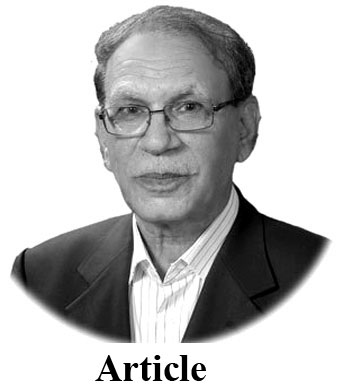Mohammad Jamil
THERE is no denying that state violence or counter violence never helps solve the problem but the big
powers should understand the gravity of the situation and help resolve the Kashmir dispute. However, it does not look like if they will do it because only when public protest fits into the geopolitical designs of the US and the West that they declare it a popular movement and honour it with the award of a colour label. The orange revolution of Ukraine, the rose revolution of Georgia, the cidar revolution of Lebanon and much earlier velvet revolution of Czechoslovakia would pale before the Kashmiris’ movement for their freedom; yet they were given colours by the colour-blind big powers. In none of the above cases was there a UN mandate whereas Kashmiris have been given their inalienable right of self-determination by the UN in 1948 and 5th January 1949.
Indian government under Narendra Modi with its senseless brinkmanship and jingoism is pushing the country on to a dangerous precipice, which is dreadful and potentially disastrous not only for the region but the world at large. Pakistan claimed that Uri attack and Pulwama attack were false flag operations, which was an effort by India that Pakistan was a state that sponsored terrorism. Anyhow, what Pakistan could not do to bring Kashmir dispute into focus internationally, Indian Prime Minister Narendra Modi did it by revoking Article 370 that led to vociferous protests by Kashmiris all over the world. It is about three months that Kashmir is under curfew and more than nine million Kashmiris are facing food and medicine shortage. This time round, international media, especially NYT, Amnesty International, UN Secretary General and even the US government expressed concerns over the situation in India-occupied Kashmir. In fact, Article 370 was incorporated in the Indian Constitution so as to guarantee significant autonomy to the Muslim-majority state. Former Chief Minister of India-occupied Kashmir Mehbooba Mufti, who is under house arrest in the state capital Srinagar, said the decision betrayed Kashmir’s decision to align with India in 1947. She rued the earlier decision to give preference to India over Pakistan, which was flawed one. In fact, it was fraud committed by India by assuring Sheikh Abdullah and a few others that Article 370 allowed the state to have its own constitution, a separate flag and independence over all matters except foreign affairs, defence and communications. Modi government broke up the state into two smaller, federally administered territories – one region will combine Muslim-majority Kashmir and Hindu-majority Jammu, and the other Buddhist-majority Ladakh, which is culturally and historically close to Tibet.
Kashmiris suffered death and destruction unparalleled in the history, first during Dogra Raj, and then faced murder, rape and killing at the hands of Indian armed forces. Frustrated by the apathy of the international community and non-implementation of United Nations Security Council resolutions, the Kashmiri youth took up the arms in 1989. However after 9/11, political landscape of the world changed dramatically, and the freedom struggles of the people the world over were dubbed as terrorists. When in summer of 1989 the Kashmiris stormed out on the street in a spontaneous popular uprising against the Indian rule they were demanding implementation of UN resolutions to decide their destiny in a UN supervised plebiscite. The principal western powers, including the United States, were signatories to this UN mandate on which India had long reneged after first agreeing to it by the then Prime Minister Jawaharlal Nehru.
No western chancellery uttered a word of protest as India set their trigger-happy soldiers upon the unarmed demonstrators to clobber and punish them, to kill and disable them methodically and systematically. There was calm and quiet in those chancelleries as Indian soldiers savagely murdered, raped and maimed the Kashmiris; and took thousands of their youth incarcerated for years. The then President Bush of the US had said that western nations are engaged in the defining of the ideological struggle of the 21st Century. How correct was that perceptive Greek historian Thucydides when he famously said: “The strong do as they can and the weak suffer as they must”? From the western chancelleries the Kashmiris can get a name for their freedom struggle, but can hope for not a colour label for it. Terrorists, they will stay in their eyes despite the fact that Indian forces are the terrorists. It is unfortunate that Kashmiris are facing death and destruction for more than seven decades, but international community shows indifference towards their sufferings. Big powers do not impress upon India to implement the UNSC resolutions bestowing on Kashmiris the right to self-determination. Even those countries that had in the past supported Pakistan’s genuine stance now suggest that India and Pakistan should resolve the Kashmir dispute through bilateral negotiations, knowing full well that many rounds of dialogue have taken place including the stalled composite dialogue, but to no avail. India takes the plea that according to Tashkant Declaration and Simla Accord both countries are obliged to resolve the issue through bilateral negotiations. India should bear in mind that the Kashmir dispute is pending in the UN, and Pakistan can approach the UN with the demand to play its role and make arrangements to hold plebiscite in Jammu and Kashmir as per UNSC resolution.
—The writer is a senior journalist based in Lahore.










